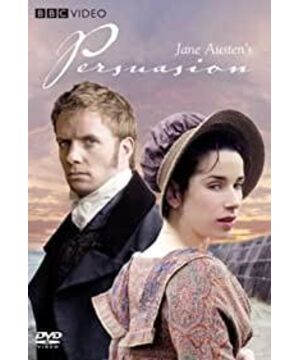Persuasion is a novel by Jane Austen, telling a twisting and moving love story. The heroine Annie lost in persuasion, grew up in persuasion, and finally bravely moved towards happiness.
As soon as she learned to distinguish the opinions of others, the heroine Anne was engaged to Colonel Wentworth at an early age, but she was too cautious and rational when she was young, and accepted the persuasion of her elders, which led to reluctance to break up with Colonel Wentworth. Afterwards, although Anne broke up with Colonel Wentworth, the pain of love took root in her. Not only did those grief pains not dissipate, but they grew stronger over time.
Anne has not escaped the abyss of self-blame and guilt for eight years until she was 27 years old. She once thought that rational and sober persuasion was like a thorn stuck in her throat, stabbing her bloody and bloody.
For eight years, she also faced the marriage proposal of Charles, who is now also her brother-in-law, but she did not accept it. Although Anne has become mature and independent in eight years, she is indeed living in the past and has never forgiven herself and allowed herself to go out.
In the emotional world, perhaps others will analyze and judge rationally, and teach themselves to choose affordable love and get rid of those that are slightly poor and cheap.
But can the result of such a fuss be considered love? Emotions are your own business anyway. Although other people's suggestions should be accepted, they should not be blindly accepted.
After all, in the end, you always face the consequences of blindly letting others persuade yourself, not others, and you are responsible for yourself, not others.
No matter what kind of persuasion, benevolent or malicious, you are the one who bears the consequences in the end. Therefore, you must learn to judge and analyze yourself to make a decision. The second learns to listen to her inner persuasion. When she meets Colonel Wentworth again, she can't help but panic. Annie has never forgotten him. The consequences of her initial persuasion made her cry countless times, but she can only face such an ending.
Colonel Wentworth was complaining and annoyed at Annie's behavior, so when he returned home, he did not refuse to approach other rich girls, and remained indifferent to Annie.
However, Colonel Wentworth, despite his apparent estrangement towards Anne, still cared about her when she accidentally fell, and helped her into the carriage, always showing a secret expression of Wentworth's warmth .
When Annie faced her cousin's violent love attack, her elders once again persuaded her to stay with her prominent cousin, but Annie clearly rejected her cousin after clarifying her heart step by step. Anne finally mustered up the courage to take the initiative to express her heart to Colonel Wentworth.
This time, Anne finally discerned the voices around her, and learned to face up to her inner persuasion, so she came together with Colonel Wentworth.
Persuasion is not necessarily suitable. Only after listening carefully, considering carefully, and revising carefully, can it become a suggestion that suits your size.
Blindly applying other people's persuasion will lead to oneself suffering painful consequences and regretting the original.
View more about Persuasion reviews











